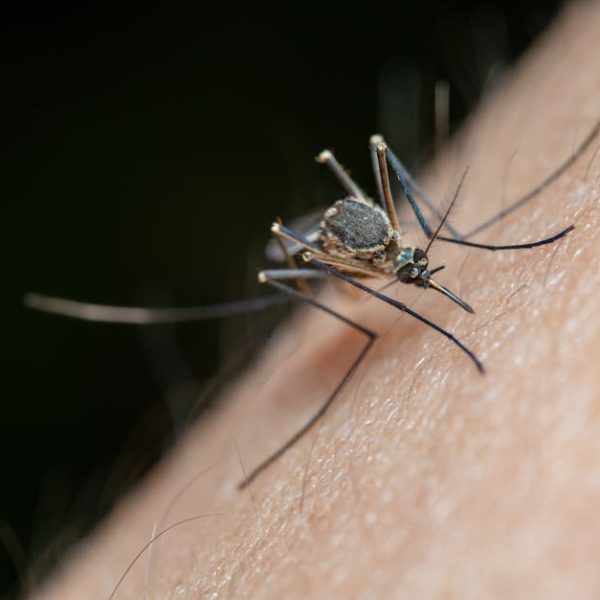Centipedes are intriguing arthropods with a millipede-like appearance that can startle even the bravest amongst us, especially when they scurry across our dwellings unnoticed. While they might play a vital role in the ecosystem by feeding on other harmful pests, their uninvited presence within our homes can be unsettling. Fortunately, there are natural and homemade solutions you can utilize to repel these multi-legged creatures and restore peace to your home environment.
Understanding Centipedes: Habits and Habitats
From the tiny house centipedes to the larger tropical species, centipedes are predominantly nocturnal creatures that favor damp and warm environments. They often inhabit gardens and house perimeters, taking shelter in piles of leaves, brush, or under stones. However, changes in weather or scarcity of food can drive them into our homes, especially into areas that mimic their preferred habitats like bathrooms, basements and kitchens. Familiarize yourself with the appearance and habits of centipedes. This will equip you with the knowledge to identify and swiftly deal with them.
The Importance of a Clean and Dry Environment
Centipedes thrive in humid and cluttered spaces – perfect hideouts that offer them both food and shelter. Maintaining a tidy, dry home is your first line of defense. Discouraging these arthropods from setting up residence in your home could be as simple as reducing humidity levels, fixing any leaks, and keeping areas clean. Incorporate regular cleaning schedules, focusing on potential centipede hideouts, and watch your home transform into an undesirable habitat for these creatures.
Natural Homemade Repellent Solution #1: Essential Oils
You might be surprised to learn that the essential oils you love for their soothing and relaxing properties can be an effective tactic in your centipede-control arsenal. Some essential oils, like peppermint, tea tree, and eucalyptus, not only repel centipedes but many other household pests too. Mix a few drops of essential oil with water in a spray bottle and apply the mixture to the entry points and hideouts. The aromatic nature of these oils creates a deterrence factor, keeping these pestering critters at bay.
Natural Homemade Repellent Solution #2: Vinegar Spray
If centipedes had a nemesis, vinegar would be a worthy contender. This readily available kitchen staple not only cleans but also repels a range of pests, including centipedes. To create your own repellent, mix equal parts of white vinegar and water in a spray bottle. However, it’s important to bear in mind that vinegar can harm certain surfaces. Therefore, avoid spraying it on marble, stone, and hardwood surfaces.
Natural Homemade Repellent Solution #3: Diatomaceous Earth
Diatomaceous earth – a naturally occurring, soft sedimentary rock – could be your answer if the centipede problem persists. This nontoxic powder destroys the exoskeleton of centipedes, making it a potent management tool. Sprinkle it around your home’s perimeter and possible entry points, and witness the effectiveness of this fossilized algae.
Natural Homemade Repellent Solution #4: Spices and Herbs
Your spice cabinet can double as a source for homemade repellents. Certain spices like cinnamon, cloves, and cayenne pepper have potent scents that are unpleasant to centipedes. Sprinkle these spices or herbs across centipede-infested areas to create a deterrent. Alternatively, use cotton balls soaked in essential oils from these spices and herbs for a prolonged effect.
Natural Homemade Repellent Solution #5: Mothballs and Cedar Chips
Mothballs and cedar chips can work as effective centipede deterrents. These substances give off strong odors that centipedes find intolerable. Strategically place mothballs or scatter cedar chips around the darkest and dampest corners of your home, forcing the centipedes to relocate.
We’ll continue our foray into homemade solutions for centipede control in the subsequent sections of this article. Stay tuned as we explore a range of eco-friendly, effective, and budget-friendly solutions to keep centipedes at bay. Remember, knowledge is your first line of defense in winning the battle against unwelcome pests in your home, naturally and safely.
Natural Homemade Repellent Solution #6: Soap Solutions
This may surprise you, but simple soap solutions can act as an effective centipede repellent. Centipedes breathe through their bodies’ pores, so a soapy encounter can suffocate and kill them. Drawing a basic soap-water mixture in a spray bottle, you can apply this solution to potential entry points, nooks, and crannies. Be sure to use soaps that don’t contain harmful chemicals, to ensure the safety of any pets or children at your home.
Natural Homemade Repellent Solution #7: Citrus Peels
Believe it or not, citrus peels serve more purpose than just lending flavor to your food and drinks. The aroma of these peels isn’t friendly to centipedes, making them a natural repellent. Next time, after enjoying an orange or a grapefruit, don’t dispose of the peels. Instead, place them strategically around your home, especially in high-traffic centipede areas. Watch as the smell works magic, leaving the critters scuttling for an exit.
Following Through: Long-Term Centipede Control Measures
While homemade solutions can help minimize your household’s centipede infestation, consistent and long-term control measures are equally essential. These include preventing moisture buildup in your home by fixing leaks and damp areas, sealing crevices and cracks that can serve as entry points, and regularly removing clutter and debris from your property.
To conclude, while centipedes may be unwelcome guests, a combination of deep understanding, cleanliness, and effective homemade solutions can help keep them at bay. Ensure you follow through with the suggested measures for best results. Always remember: prevention is better than cure. Stay vigilant and maintain a clean, dry and clutter-free home environment to keep these multi-legged trespassers from making your home their own.
Key Takeaway:
- Centipedes, although crucial to the ecosystem, can be a nuisance when they invade our living space. Knowledge about their habits and habitats can help tackle them effectively.
- Maintaining a clean and dry living environment can significantly discourage centipedes.
- Various natural homemade solutions like essential oils, vinegar spray, spices, soap solutions, cedar chips, mothballs and diatomaceous earth can act as successful repellents against centipedes.
- Long-term centipede control measures include controlling moisture and cleaning clutter, thus eliminating potential habitats for centipedes.
While the sight of a centipede in your home may feel unsettling, remember that with some dedication to cleanliness, effective usage of simple homemade repellents and diligent long-term pest-control measures, you can ensure a centipede-free home.
FAQs
Q: Is it safe to pick up and remove centipedes manually from the house?
A: Without proper protection, it’s best to avoid direct contact with centipedes, as some species can bite.
Q: Are there any particular essential oils that centipedes detest?
A: Centipedes usually dislike strong-smelling essential oils like peppermint, tea tree and eucalyptus.
Q: Can common household items like vinegar and spices be used as centipede repellents?
A: Yes, many household staples like vinegar and spices such as cinnamon, cloves, and cayenne pepper can deter centipedes.
Q: Is Diatomaceous Earth safe for household use around children and pets?
A: Yes, Diatomaceous Earth is non-toxic and safe to use around children and pets.
Q: Besides using repellents, what long-term measures can be taken to deter centipedes from homes?
A: Long-term control measures include maintaining cleanliness, controlling moisture, sealing cracks and crevices, and avoiding clutter in the house.
Feel free to share this informative article with your friends or family who might find it useful. Explore more posts on our website for insights and solutions to many more everyday challenges.






